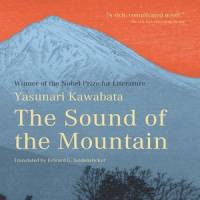The first Japanese winner of the Nobel Prize in literature in 1968, Yasunari Kawabata, deals with the gradual decline that comes with aging in "The Sound of the Mountain."
Family patriarch Shingo Ogata, a businessman nearing retirement, lives with his wife, son and daughter-in-law in Kamakura. Shingo has an affinity for the natural world, which serves as a metaphor for his feelings and reactions to events around him.
He is forced to ponder his own past performance as husband and father when both the marriages of his adult children run into trouble: Daughter Fusako leaves her husband, arriving home with her two small daughters, while her brother, Shuichi, neglects his own wife, Kikuyo, and brazenly carries on an affair. Shingo sees something of a kindred spirit in the devoted and gentle Kikuyo, and his affections for his daughter-in-law are a tad more than fatherly. At the same time, he feels guilt over a long-held infatuation for his late sister-in-law.
Despite his self-perceived shortcomings, Shingo is a sympathetic protagonist, and as he takes action to end his son's affair and bring him back into the family fold, the book closes with a tentative sense of hope for a happier future for the Ogatas.
Kawabata delivers his characters and their dialogue in sensitively written prose that moves at a leisurely pace, and this domestic drama of is best enjoyed in the same manner.
Read archived reviews of Japanese classics at jtimes.jp/essential.


















With your current subscription plan you can comment on stories. However, before writing your first comment, please create a display name in the Profile section of your subscriber account page.